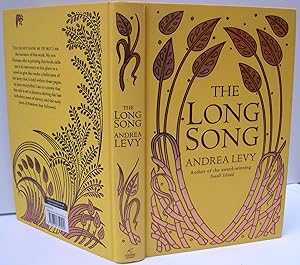

The fable would never be lost and, in its several recitals, might gain a majesty to rival the legends told whilst pointing at the portraits or busts in any fancy great house upon this island of Jamaica. Her intention was that, once knowing the tale, I would then, at some other date, convey its narrative to my own daughters. My mama had a story-a story that lay so fat within her breast that she felt impelled, by some force which was mightier than her own will, to relay this tale to me, her son. The book you are now holding within your hand was born of a craving. Come, let them just read it for themselves.' All this he wishes me to pen so the reader can decide if this is a novel they might care to consider. Perhaps, my son suggests, I might write that it is a thrilling journey through that time in the company of people who lived it. But what befalls them all is carefully chronicled upon these pages for you to peruse. My son says I must convey how the story tells also of July's mama Kitty, of the negroes that worked the plantation land, of Caroline Mortimer the white woman who owned the plantation and many more persons besides - far too many for me to list here. She was there when the Baptist War raged in 1831, and she was present when slavery was declared no more. July is a slave girl who lives upon a sugar plantation named Amity and it is her life that is the subject of this tale. As your storyteller, I am to convey that this tale is set in Jamaica during the last turbulent years of slavery and the early years of freedom that followed.

My son Thomas, who is publishing this book, tells me, it is customary at this place in a novel to give the reader a little taste of the story that is held within these pages.


 0 kommentar(er)
0 kommentar(er)
